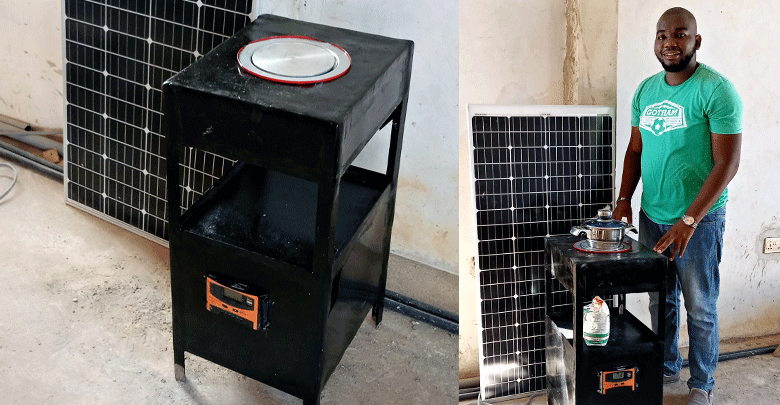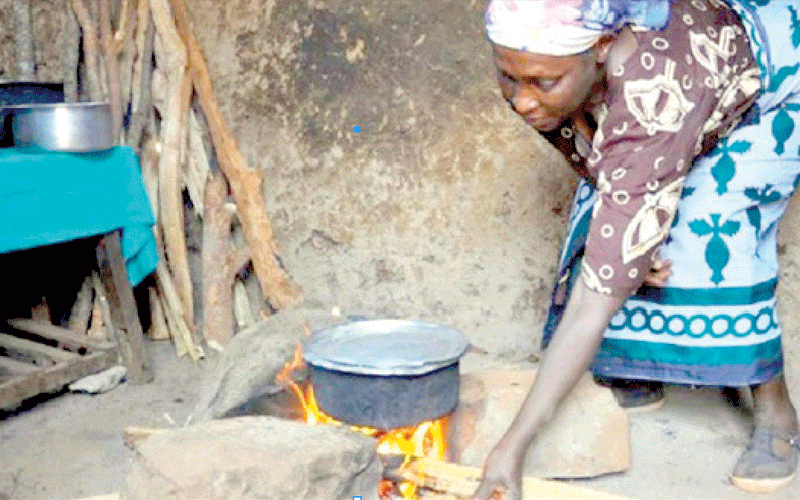Innovator wants affordable, clean cooking for Kenyans

Milliam Murigi @millymur1
Cooking has cost Kenyans a fortune over the years. Though different sources of cooking energy such as firewood, charcoal, LPG gas and biofuel are readily available nowadays, they come at a cost that keeps increasing year after another.
However, all this is set to change and Kenyans will be cooking for free if they embrace a new technology by Athel technology, a Mombasa-based company that deals in solar cookers.
Founded in 2017 by Robert Chidzugwe Nguma, the company started off with briquette production using agricultural waste.
As much as the innovation lowered the cost of cooking and number of deaths due to indoor pollution, Robert was not satisfied with the result.
He wanted to come up with a product that will take the cost of cooking to almost zero.
With briquettes, Kenyans were still forced to dig deeper into their pockets to get them.
“I ventured into briquettes production after realising Kenyans loved farming, but didn’t know what to do with the agricultural waste. I used this waste to make briquettes.
But despite that, briquettes were way cheaper compared to charcoal not so many would afford to buy them,” says the Jomo Kenyatta University of Agriculture and Technology graduate.
Through this initiative, the company got a grant in 2018 from World Bank through Kwale county where Nguma comes from.
In 2019, he kept on thinking of a better and more affordable cooking solution.
That is when he partnered with Evan Gari to expand the business. The partnership gave birth to solar cookers.
No emissions
Solar cooker is an innovation that allows families to cook for free. It utilises sun energy, an untapped source of energy.
The cooker automatically auto charges its battery during the day and from the stored charge, one is able to prepare food for the family for the rest of the day.
“The best thing is that solar cookers have no emissions and use free solar energy, which is accessible worldwide.
The technology is one way of reducing deforestation and is less costly compared to other alternative cooking solutions such as firewood and gas cookers, which need constant refills,” explains Nguma.
The cooker comes with a solar panel, battery, charge controller, and Athel induction cooktop.
The panel absorbs sunlight, which is then converted into energy, stored in the backup batteries through the charge controller.
The cooktop uses energy directly from the battery to have a stable voltage to allow cooking.
The battery continually auto charges during the day even while cooking and at night, the cooktop continues to draw energy from the backup battery for cooking.
The cooktop is no different in size from the gas ones used in homes. For proper and efficient use of the cooktop, one needs a 250 watts’ solar panel with a 200-amp solar battery.
They allow one to have a least four to five hours of cooking at night without any sunlight.
“That I have managed to come up with a technology that is helping people to save money used in buying charcoal daily or monthly gas refills is just amazing.
The solar cooker is the beginning of a new era where people would not be thinking of buying cooking fuel anymore,” Nguma says confidently.
The great reception of the cooker has made him expand to other cooking gadgets such as solar electric grills for barbeque and electric ovens for baking. All products come with in-built backup batteries and solar panels.
Pre-installed package
“We are looking into installing the cookers in hotels, apartments, schools, and even the low-income residents and “mama mboga” through our monthly payment instalments.”
In February 2020, the company partnered with the Kenya Climate Innovation Centre to receive business development support.
Through this support, they have managed to patent the invention and get Kenya Bureau of Standards (KEBS) and Kenya Industrial Research and Development Institute (KIRDI) certification.
Currently, they are working with six consultants, who serve as sales representatives, fabricators, installation technicians, and one permanent sales agent.
They currently have two workshops, one in Mazeras, Kwale county, and the second one in Shanzu, Mombasa County.
Since they are looking into hitting the market with different strategies compared to other cooking fuel companies, they are working on getting collaborations with real estate developers and universities.
“We want to work closely with real estate developers in that when building houses, we can have solar cookers pre-installed as a package included in the rent. We are also looking into partnering with universities to install solar cookers in the student’s rooms. Through this, students will stop using electric coils which make such institutions have huge electricity bills,” Nguma says.
Their long-term objective is to produce an eco-friendly, clean, reliable, and efficient cooking solution for every household.









